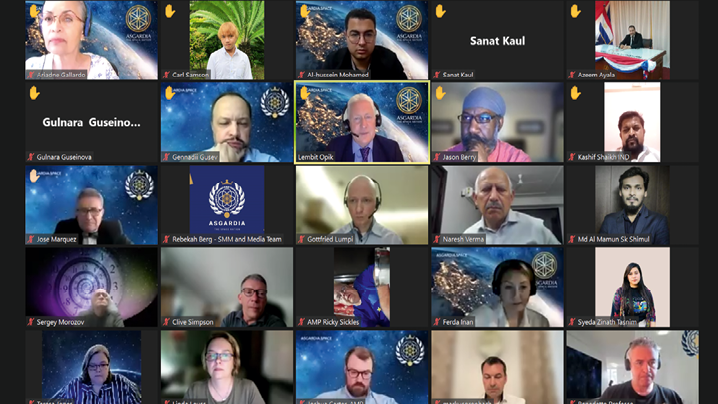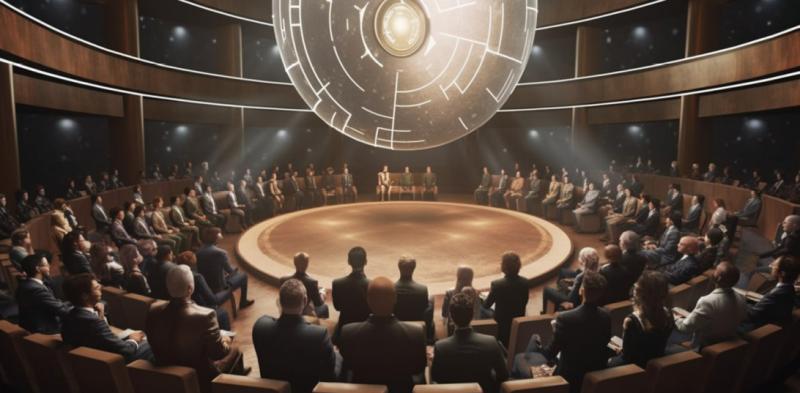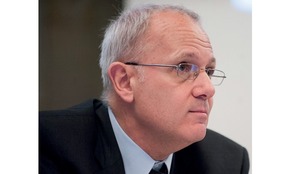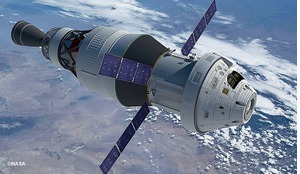Lembit Öpik was elected as the Chair of Parliament for Asgardia in 2018. His first term as Chair - and the first term for all Asgardian Members of Parliament (AMPs) - came to an end in 2023, when Asgardia’s second General Election was held. Here, he reports on the new elections, what was achieved in the first five years, and what he believes should be the agenda for the newly constituted Parliament in serving Asgardia’s stellar mission.
In 2018, I was elected to the first ever Parliament of Asgardia, to serve as one of 150 Parliamentarians and establish the democratic processes of our new nation state. I was also honoured to be chosen to serve as the first Chair of Parliament. This was a huge role, requiring all the skills and experience I had gathered across four decades in frontline politics, in the UK and internationally.
The challenge of making that first Parliament work was so big because of the pioneering nature of Asgardia’s democracy. Asgardia is different to Earth nation states for three main reasons. Firstly, Asgardia owns no territory on the planet’s surface. Secondly, our Parliament contains no political parties. And thirdly, we operate mainly on a digital and not on a physical basis. These triple qualities make Asgardia’s Parliament a unique experiment in democratic procedures. We’re doing things nobody else has ever done before.
We have now tested our systems - and ourselves - for five years. I’m pleased and perhaps even somewhat relieved to report that the experiment has so far been successful. We’ve collectively evolved our Parliament to the point where I can honestly say Asgardia functions as the first truly effective digital democracy in human history.
 Acknowledging achievement and looking to a successful future
Acknowledging achievement and looking to a successful future
Measures of success
Our remote processes are an excellent precursor for how things must be done in spaceJames
There are specific measures of success. We have demonstrated our ability to create laws for our nation, using clearly defined processes that have developed over time, and which allow everyone to input in a respected and open way. This process has also valued the concept of making the minimum laws necessary to achieve our goals. It is my hope that we remain a nation that regulates as little as possible.
We’ve also created new Parliamentary protocols from a standing start. These protocols are based on our need to operate remotely together from all around the world. It works well. I do a lot of on-line meetings outside Asgardia but those within Asgardia are the most professional and smooth I ever experience. Our remote processes are an excellent precursor for how things must be done in space, where there is a similar requirement to work together across great distances, because regular physical meetings are impossible.
We solved problems relating to inter-country communications. The obvious one is language. Using a combination of human interpreters and artificial intelligence, we have found ways that deliver meaningful mutual interaction. It’s not perfect, and we can improve this, but after five years I feel that we have made tremendous progress in creating a shared forum for debate where people are not excluded on the basis of language or culture.
The Asgardia General Election was held at a time when Parliament already had momentum from existing Asgardian Members of Parliament (AMPs). To what extent would the election attract new Asgardian Residents to become candidates and existing Asgardian Parliamentarians to stand again?
Well, over half of the existing AMPs nominated themselves to be candidates again. And the total number of candidates was 227. That was more than I expected - and it meant the election was highly contested. There was also more campaigning by candidates than in either the first General Election, or in a by-election for new AMPs which we held roughly mid-term in the five-year period. Each candidate also submitted their manifesto and plan of action, and the process of the election was focussed on what the Parliament would and should do in the next half-decade, and not just on personal qualities.
As a result of all this electoral activity, Asgardia’s Residents elected the second full Parliament with a total of 150 AMPs.
Digital sitting
In order to get things moving, we held our first Digital Sitting of the new Parliament shortly after the results were announced. This first session agreed some essential things so Parliament could function until all appointments had been confirmed. This included the appointment of the Prime Minister and Lena de Winne was approved by Parliament to continue in this role. So, also, were the Chairs of the Mandate Commission and Counting Commission, operationally important appointments relating to some core functions.
I am also very pleased to report that I was re-elected to the position of Chair of Parliament. It means I have the honour of remaining as Chair until 2028. Therefore, I can now direct Asgardia towards what I think is the crucial shift from establishing democratic processes to delivering results. I have the view that we spent the first two years of the first Parliament learning how to work together. It was a time to build our political culture.
We have that culture now and, as about half Asgardia’s Parliament’s Members have served before, this enables the culture to continue with a big time saving in terms of learning how to operate together. New Parliamentarians will add their input to the evolving culture through their insight and character, and this adds new energy - which always happens after a General Election. I observed the same phenomenon after General Elections in the UK, when I was a Member of British Parliament and new MPs re-energised the political process.
Vision and mission
We have made tremendous progress in creating a shared forum for debate where people are not excluded on the basis of language or cultureJames
So, what happens next? At time of writing (mid-summer), we are still completing Asgardia’s Committee membership - including the Chairs. At a personal level, I want to note one tragic setback. One of the prime candidates for one of the Committees, Phil Appleby, died shortly after the election, and this caused both grief and delay to proceedings. But Asgardia must carry on, and so the candidates for the position of Committee Chairs will soon be available for consideration and voting by each Committee.
I also had the opportunity to discuss Asgardia Parliament’s vision and mission with the Head of Nation, at this year’s Corfu Summit. It’s a high-level strategic meeting held by Asgardia founder, Dr Igor Ashurbeyli, to review progress and look ahead at the achievement of our goals. They include the first human birth in space and creation of the first permanent human space community, where people can live off-Earth in an environment that is safe, stimulating and financially and socially attractive.

And that’s the point, isn’t it? We must always remember that Asgardia does not exist for the sake of its Parliament. Conversely, Asgardia’s entire civic system exists to help humanity reach for the stars, and to live beyond our home planet at new destinations, in peace and for all humankind.
In achieving that bold and inspirational ambition I, as Chair of Parliament, will do all I can to ensure that we - the elected representatives of our Citizens, Residents and Followers - will live up to the trust that has been put in us to play our part in what is surely the most inspiring journey awaiting us in the years ahead.














